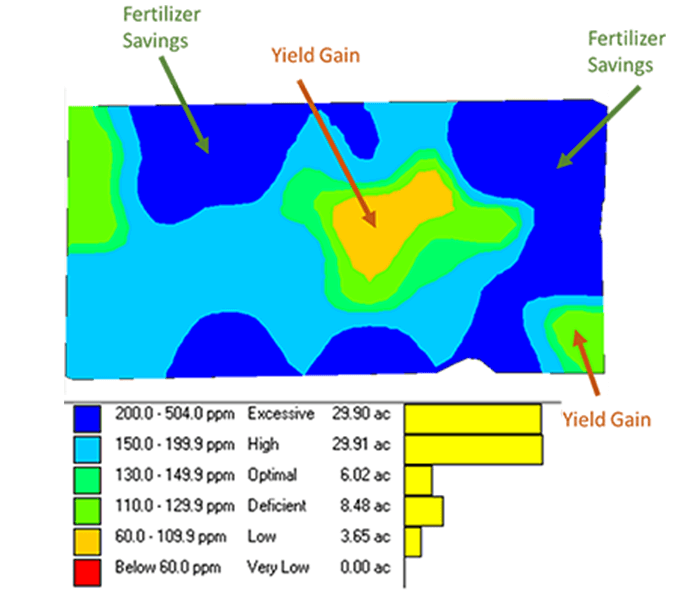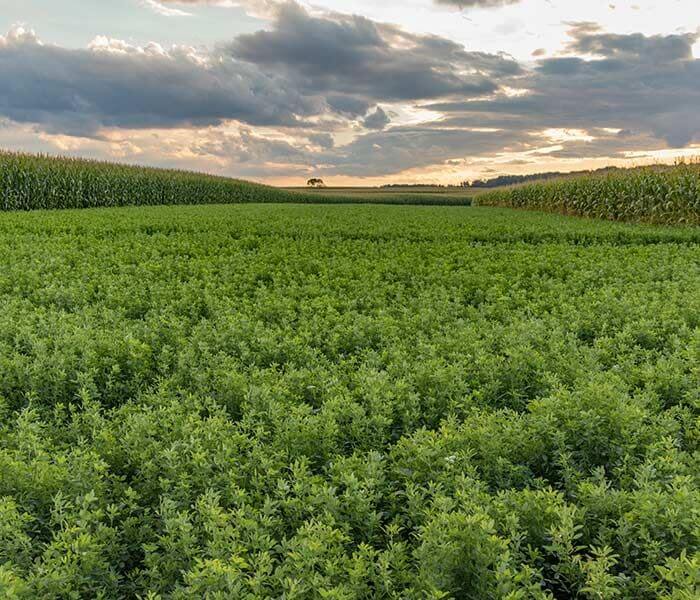Premier Co-op

Fertilizer and VRT
Focus on Efficiency: Fertilizer and Variable Rate Technology A farmer’s key to maintaining that profitability into the new year will be managing costs. That does not necessaril...

Summer Seeded Alfalfa.
Summer seeded alfalfa offers many benefits such as a yield advantage in 1st production year as compared to spring seeding and reduced disease pressure at establishment, as warmer and drier soils in summer have less disease pressure. Follow these tips for success.
Seed alfalfa from July 20th to August 30th in the Upper Midwest and to mid-September for Central U.S.
Planting summer seeded alfalfa with a drill is critical so the alfalfa stand can sequester adequate moisture from the soil, especially this year as moisture is limited in many regions. Alfalfa seed should planted in the soil 1/2-3/4 inch of depth.
No-tilling/minimum tillage offers the option of conserving more soil moisture in dry regions.
Weeds need to be controlled in late summer even more than spring.
Use Roundup Ready® alfalfa varieties such as HarvXtra MegaTron or RR AphaTron 2XT. Roundup applications in the fall avoid crop injury to the alfalfa plant and offer adequate control of weeds to ensure fields are clean the following spring.
Other than a grass contact herbicide, do NOT apply a fall herbicide besides glyphosate. Crop injury during the fall can mean the alfalfa will not be able to survive winter.
Ensure the alfalfa plants have 6-8 weeks of growth before entering winter. If plants do not reach adequate size, they are not likely to survive winter.
Fertilizer Applications
Apply fertilizer to replace removed nutrients.
Potassium (K) and Phosphorous (P) are important nutrients required for high yield alfalfa.
Alfalfa needs 50 pounds of K applied per every DM ton of forage removed.
Sulfur (S) is important for protein production. Sulfur should be applied annually at a rate of 5 pounds per ton of expected forage.
Boron (B) is also needed for alfalfa and can be applied annually with K.
Benefits of Alfalfa in Cropping Rotations
Evaluate alfalfa stands and rotate less productive acres for “FREE” N fertilizer and other crop rotation benefits that alfalfa provides.
Alfalfa is the only crop that can produce all the nitrogen requirements for a wheat crop. Depending on yield goal, alfalfa may provide nearly all the N required for corn.
Evaluate established alfalfa stands and rotate if alfalfa stands are in yield decline.
Nitrogen from alfalfa is worth big money!
Alfalfa is the ultimate super-collector for obtaining and holding nutrients and Carbon in the soil profile due to its deep and extensive root system
Fill out the form below to contact your local Premier alfafla expert if you have any questions.
